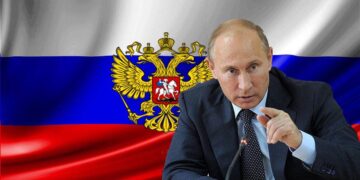Do swidaniya Vlad? Which translates as Goodbye, Vladimir? That is what analysts are now asking because of the ever-worsening stuff for Russian President Vladimir Putin, especially since the start of the Ukraine war.
It was more than 20 years ago that Boris Yeltsin, already visibly frail at the time, nominated him as prime minister and designated successor as head of the Kremlin. Since then, the now 69-year-old has been prime minister, president, prime minister and president again and again – for the Russian constitution has a limit on how long the state can stay in office.
Not even he himself expected that Putin would ever reach the highest offices. He grew up as a boy in a working-class family in a Leningrad backyard. His mother endured the nearly 900-day blockade by Hitler’s Wehrmacht in the Neva city.
To fight back against the strong guys, Mr Sutka learned judo, and after school, joined the KGB at an early age. Until the fall of the GDR, He served with the Soviet intelligence service in Dresden. In 1990, Mr KGB’s first job after that was at Leningrad State University, supervising Western study-abroad students.
Only a year later, he moved to City Hall, became deputy to Mayor Anatoly Sobchak, at a time when press writers campaigned for change from Gorbachev to Yeltsin, from the Soviet Union to Russia, and for Leningrad to be renamed back to St. Petersburg, and organized sit-ins in front of Putin’s and Sobchak’s offices.
On the other hand, the class of oligarchs had by no means been abolished. In their place came the state oligarchs. The owners of large corporations, the bosses of the quasi-monopolies Rosneft, the Gazprom or the Sberbank, and close friends from Putin’s Petersburg days who, together with the Kremlin boss, owned the dacha collective “Osero,” a sort of settlement of summer houses, at a lake not far from the Neva metropolis.
But Putin owed his re-election to social benefits, economic stability, and the visible and tangible upswing after the destructive decade of change following the fall of the Soviet Union. First mass protests in Moscow, brutally beaten down and ending with years of imprisonment for demonstrators, did not occur until 2011/12, after first rigging the Duma election and then announcing that Putin – who after two terms as president was now prime minister again – wanted to be re-elected head of state.


















































Discussion about this post